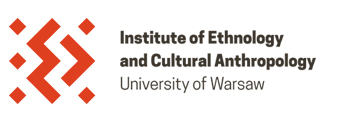Oscypek and its Fakes: Shepherds, Farmers, and Ecologies of Cheese in the Polish Carpathians
In contemporary Poland, the PDO-certified version of oscypek enjoys the legal protection. It is actively promoted by regional and local authorities across the Carpathians, through events such as the Festival of the Oscypek and Other Cheeses and OscypekFest as well as on the Oscypek Trail which marks out bacówkas where certified oscypek is produced. However, imitation cow’s milk cheeses continue to dominate both the tourist market and the restoration business in resorts across the Carpathians (and beyond). This lecture will examine the apparent failure of certificaion to protect oscypek producers from imitations, arguing that a particular dynamic of practices and policies has created a ‘grey’ space in the market which is populated not simply by ‘fake’ oscypek, but a much wider ecology of cow’s milk cheeses and their makers.
Dr Nicolette Makovicky is Lecturer in Russian and East European Studies, School of Interdisciplinary Area Studies, University of Oxford. She has published on themes including labour, informal economy, entrepreneurialism, gender, and citizenship. Makovicky is editor of the volume Neoliberalism, Personhood, and Postsocialism: Enterprising Selves in Changing Economies (Ashgate/Routledge, 2014) and co-editor of Economies of Favour after Socialism (University of Oxford Press, 2016). She has done fieldwork in Slovakia, Poland, and the United Kingdom.
Spotkanie odbywło się w ramach projektu „Antropologia dziś - otwarte seminaria naukowe”. Zadanie „Antropologia dziś – otwarte seminaria naukowe” finansowane jest ze środków Ministra Nauki i Szkolnictwa Wyższego przeznaczonych na działalność upowszechniającą naukę. Projekt jest realizowany przez Stowarzyszenie Pracownia Etnograficzna im. Witolda Dynowskiego we współpracy z Instytutem Etnologii i Antropologii Kulturowej UW.


